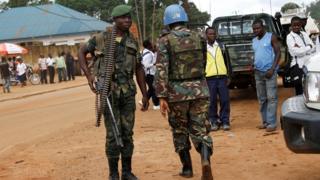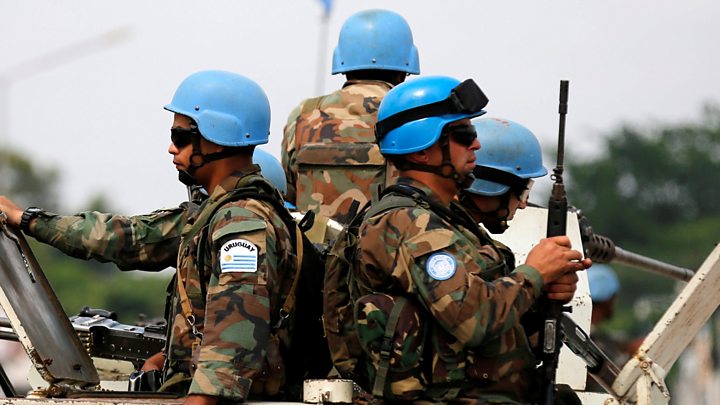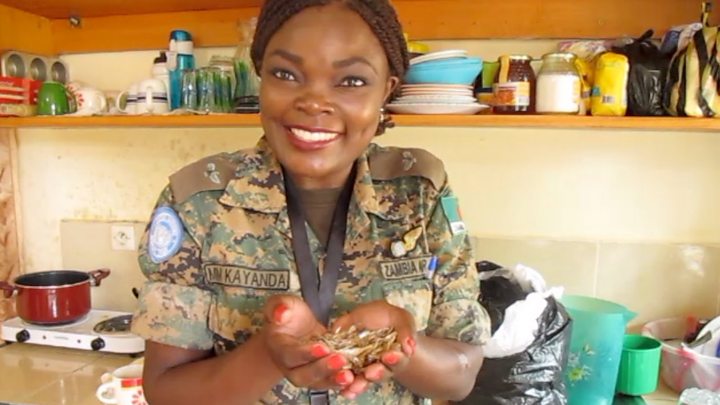VIDEO - UN flag no longer offers 'natural protection' to peacekeepers - BBC News
 Image copyright Reuters Image caption Missions in Africa are among the most dangerous for UN peacekeeping troops
Image copyright Reuters Image caption Missions in Africa are among the most dangerous for UN peacekeeping troops The UN's flag and blue helmets no longer offer "natural protection" to its peacekeeping forces, who should not shy from using force if necessary, a high-level United Nations report says.
UN peacekeepers should be prepared to take offensive measures to eliminate threats, according to the report.
It said that force was the only "language" understood by attackers.
Almost 200 peacekeepers have been killed in the past five years. Missions in Africa are among the most dangerous.
This figure is more than during any other five-year period in history, and 2017 saw the highest number of peacekeeper fatalities through violent acts in over two decades, with 56 peacekeepers killed, the report says.
Peacekeepers face armed groups, terrorists, organised crime, street gangs, criminal and political exploitation, and other threats, it said.
"Unfortunately, hostile forces do not understand a language other than force. To deter and repel attacks and to defeat attackers," the report said, adding: "The United Nations needs to be strong and not fear to use force when necessary."
The report, called Improving Security of United Nations Peacekeepers: We need to change the way we are doing business, was commissioned by UN Secretary General Antonio Guterres and submitted in December by a team headed by Brazilian Lt Gen Carlos Alberto dos Santos Cruz, a former UN commander in Haiti and the Democratic Republic of Congo.

Media playback is unsupported on your device
Media caption Is UN peacekeeping working in Africa?Enhanced pre-deployment training and better equipment are among the report's recommendations to deal with those threats.
It suggests that troops need to change their mindset, take risks and show a willingness to face these new challenges.
Leadership at all levels needs to show initiative, commitment, and determination to adapt, the report urges, adding that the United Nations is most often attacked as a result of inaction.
"Each mission is unique, and even within each country, different situations require different actions given the threat that prevails in an area," the report said.
"But what never changes is that the interpretation of mandates, rules of engagements and other documents should support taking ACTION, and not be used to justify INACTION."

Media playback is unsupported on your device
Media caption What home comforts keeps this UN peacekeeper going?Missions in Africa are the most vulnerable, with the UN mission in Mali having lost 91 people since 2013, while 29 were lost in the Central African Republic and 26 in Sudan's war-torn region of Darfur.
The vast majority of the victims themselves were from Africa. Chad and Tanzania have suffered the heaviest losses since 2013, followed by Guinea, Niger and Ethiopia, the report added.